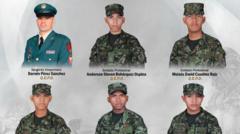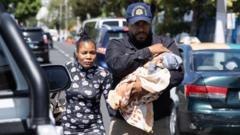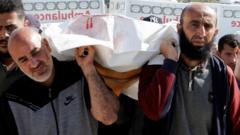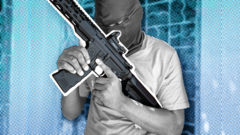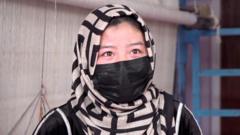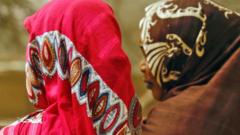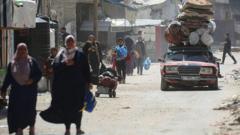The escalating turmoil continues to rob the youngest generation of their basic rights to education and safety, raising urgent concerns for the future of Haiti.
**Haitian Children Face Dark Future Amid Escalating Gang Violence**

**Haitian Children Face Dark Future Amid Escalating Gang Violence**
As gang violence surges, countless children in Haiti are left without access to education or safe environments.
In Haiti, the alarming rise of gang violence has not only disrupted daily life but has systematically deprived hundreds of thousands of children of their right to an education. Schools have been forced to close or have turned into makeshift shelters for families fleeing violence, leaving many youths without formal learning opportunities.
One particularly heart-wrenching account comes from Faida Pierre, a 10-year-old girl who recalls the day she last attended school. During a gang incursion in her neighborhood in Port-au-Prince, Faida found herself alone on the rooftop of her school, crying and terrified as chaos unfolded around her. Her teachers and principal had urgently called for parents to take their children home as gunfire erupted, leaving her vulnerable and frightened. Faida, like many of her peers, hasn’t returned to school in over a year; she now represents a frightening statistic among the 300,000 Haitian children who have been forced into inactivity due to violence.
For these children, the impact is twofold. Not only do they lose their education and opportunities for future employment, but they also face immense psychological and social challenges. Many have become targets for recruitment by the very gangs from which they sought refuge, creating a cyclical trap of violence and exploitation.
Photos from the situation reveal grim truths: schools such as the Lycée Marie Jeanne have been repurposed into camps for internally displaced individuals, where former students are now stranded amid uncertainty, hunger, and an erosion of hope. Once vibrant learning environments have transformed into stark reminders of the violence that permeates daily life in Haiti.
As the crisis unfolds, the pleas for urgent assistance grow louder. Families are calling for support, both from local authorities and the international community, to help safeguard their children’s future. Without immediate intervention, the current generation of Haitian youth risks becoming a lost generation, defined not by their dreams, but by the conflicts they were forced to endure.
One particularly heart-wrenching account comes from Faida Pierre, a 10-year-old girl who recalls the day she last attended school. During a gang incursion in her neighborhood in Port-au-Prince, Faida found herself alone on the rooftop of her school, crying and terrified as chaos unfolded around her. Her teachers and principal had urgently called for parents to take their children home as gunfire erupted, leaving her vulnerable and frightened. Faida, like many of her peers, hasn’t returned to school in over a year; she now represents a frightening statistic among the 300,000 Haitian children who have been forced into inactivity due to violence.
For these children, the impact is twofold. Not only do they lose their education and opportunities for future employment, but they also face immense psychological and social challenges. Many have become targets for recruitment by the very gangs from which they sought refuge, creating a cyclical trap of violence and exploitation.
Photos from the situation reveal grim truths: schools such as the Lycée Marie Jeanne have been repurposed into camps for internally displaced individuals, where former students are now stranded amid uncertainty, hunger, and an erosion of hope. Once vibrant learning environments have transformed into stark reminders of the violence that permeates daily life in Haiti.
As the crisis unfolds, the pleas for urgent assistance grow louder. Families are calling for support, both from local authorities and the international community, to help safeguard their children’s future. Without immediate intervention, the current generation of Haitian youth risks becoming a lost generation, defined not by their dreams, but by the conflicts they were forced to endure.







